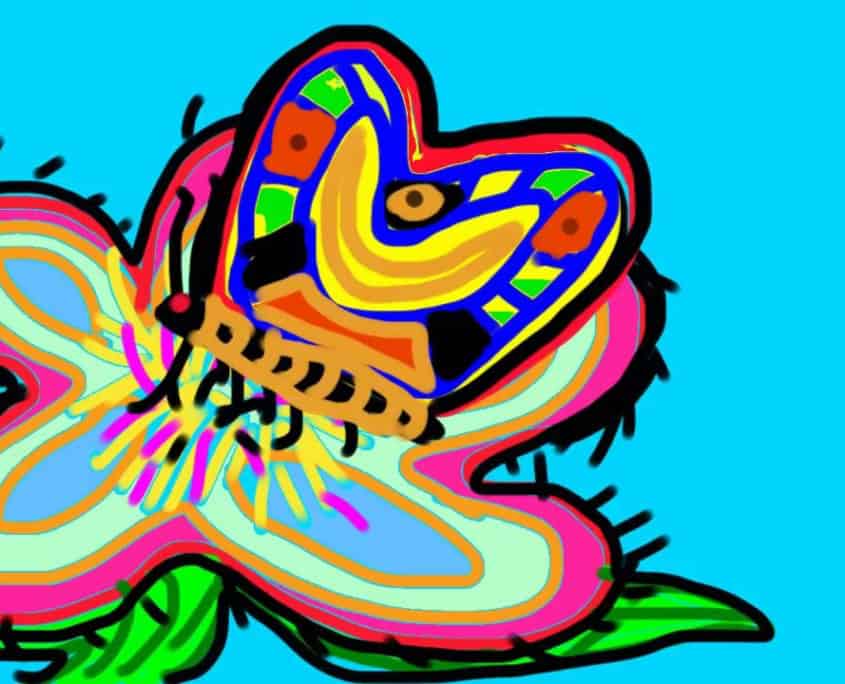TAKE ACTION – Support The Pollinators!
One Seed At A Time
Educate and Raise Awareness:
The first step to activate change is education. Let people know about the bee crisis, the very real dangers of widespread pesticide use and our perilous agricultural landscape. The health of our future begins today! By teaching our young ones the value of caring for our favorite pollinator friend, the bee, we ensure that our children today will have the knowledge tomorrow to take care of our bees. Consider exploring some of these great educational tools provided on The Pollinator Partnerships website. www.pollinator.org
Organize a Meeting in Your Community.
Utilize a public space, such as your local library or community center, have a house party, or host a pollinator-friendly dinner. This is a perfect opportunity to have a discussion with your friends and neighbors about the serious issue of pollinator decline and what you can do.
Local and National Organizations Working for Pollinators
Sustainable Land Stewardship and Pollinator Support through Education and Legislation
Garden Organically
Pesticides and herbicides threaten our bee population. Natural cleaners and pest remedies are safer, more effective and less expensive than toxic chemicals. Get rid of the poisons in your cabinets, garages and lawns. By eliminating the use of these toxins in your own garden, you allow for bees to thrive in a safe environment. Vote with your fork! Buy organic produce to help nurture the food systems that take better care of the bees and everything else on this planet.
Follow Beyond Pesticides for new updates on information about pesticide use and issues.
Seed Tins full of pollinator seed mix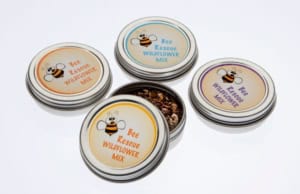
These 1/2 oz tins filled with the pollinator wildflower mixes make great gifts to give away or fundraisers for your organizations!
Pollinator Bookmarks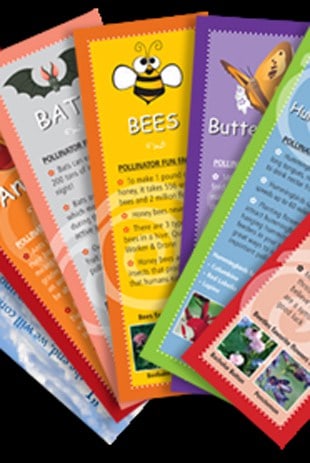
Enjoy these fun, colorful bookmarks created for National Pollinator Week. Use them for educational tools, fun giveaways or impulse purchase items at the sales counter. Representing 6 different, very important pollinators with fun facts for each. Available in packages of 6, one of each pollinator. Only $0.75 per pack!
Pollinator Stickers
For the young and young-at-heart!
The Future of Pollinators Depends on Me! sticker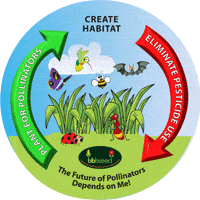
Help spread the word: “Plant Forage, Create Habitat, Eliminate Pesticides”
Plant forage! (food)
Pollinators, including Bees, are an essential part of creating a healthy eco-system for all species to survive, including plants, animals and humans. Unfortunately, pollinators and specifically bees are being threatened by the loss of their natural habitat, as well as many other factors. Ardently committed to promoting the health of pollinators as an essential component to creating a sustainable food supply, BBB Seed is pleased to be able to offer some great wildflower mixes designed for our pollinators; “Honey Source Mix , specifically crafted for the beekeeper and honey maker in mind, as well as any type of gardener who wants honey bees to thrive. “Bee Rescue Mix” for native bees and insects as well as honey bees, Hummingbird Mix” designed with nectar-rich species, and Butterflies and Birds Mix with forage and habitat species for butterflies and flowers that make edible seeds that are favorites of many bird species.
Planting a pollinator-friendly garden.
There is a beautiful synergistic relationship between bees and growing food. By planting one of our pollinator-friendly wildflower mixes near your food crops, you enhance the entire eco-system, including providing forage for the pollinators as well as ensuring good pollination for those food crops that need them. Even planting one small planter box or window garden with flowers that are loved by bees, native bees and other pollinators can help. Our mixes provide blooms all season long to ensure the pollinators have plenty of food!
Plant For Pollinators BUMPER STICKER!
Great for a car or window!
Plant for Pollinators POSTER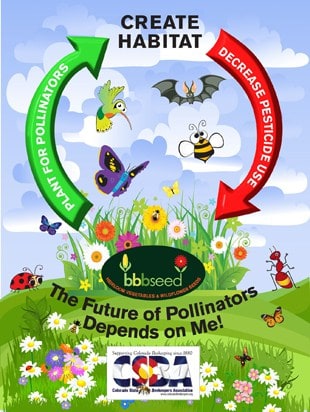
A great poster to show your support for our pollinators and help to spread the word about their peril! Encourage everyone to “Plant for Pollinators” and to “Decrease (or better yet, eliminate) pesticide use”.
Dimensions: 18″x24″
Kids Activity Sheets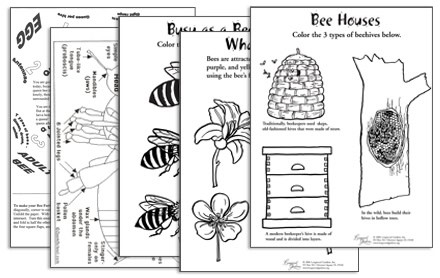
Download and printout these fun activity sheets for kids to learn and have a great time, at the same time!

